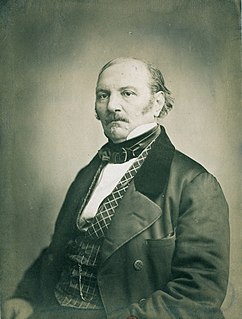A Quote by Saint Augustine
Human law cannot punish or forbid all evil, since while doing away with evils it would do away with many good things, which would hinder the advance of the common good.
Related Quotes
God did not create the evil. He established the laws which are always good because he is good. The spirits would have been completely happy had they faithfully observed the law since the beginning. But, being free to make choices, the spirits have not properly obeyed them so that evil come as a consequence of this unwillingness. One can then say that good corresponds to everything which is in accordance with God's law while evil is everything which opposes it.
It is due to neither impotence nor ignorance on God’s part that evils occur in the world, but it is owing to the order of his wisdom and to the greatness of his goodness, whence come the many and divers grades of goodness in things, many of which would be lacking were he to allow no evil to exist. Thus there would be no good of patience without the evil of persecution, nor the good of the preservation of its life in a lion, without the evil of the destruction of the animals on which it lives.
Death is not an evil, because it frees us from all evils, and while it takes away good things, it takes away also the desire for them. Old age is the supreme evil, because it deprives us of all pleasures, leaving us only the appetite for them, and it brings with it all sufferings. Nevertheless, we fear death, and we desire old age.
When anything is in the presence of evil, but is not as yet evil, the presence of good arouses the desire of good in that thing; but the presence of evil, which makes a thing evil, takes away the desire and friendship of the good; for that which was once both good and evil has now become evil only, and the good has no friendship with evil.
For a man’s life would become intolerable, if he knew what was going to happen to him. He would be made aware of future evils, and would suffer their agonies in advance, while he would get no joy of present blessings since he would know how they would end. Ignorance is the necessary condition of human happiness, and it has to be admitted that on the whole mankind observes that condition well. We are almost entirely ignorant of ourselves; absolutely of others. In ignorance, we find our bliss; in illusions, our happiness.
When you say there's too much evil in this world you assume there's good. When you assume there's good, you assume there's such a thing as a moral law on the basis of which to differentiate between good and evil. But if you assume a moral law, you must posit a moral Law Giver, but that's Who you're trying to disprove and not prove. Because if there's no moral Law Giver, there's no moral law. If there's no moral law, there's no good. If there's no good, there's no evil. What is your question?
Of all the human evils, of which we have thousands of years of record and our own contemporary experiences, the most horrible evil of all is hypocrisy. It's this idea that there are those who do bad and there are those who do good, when, in fact, even the people who supposedly do good are saying they do good to mask the fact that they do evil.
Evil denotes the lack of good. Not every absence of good is an evil, for absence may be taken either in a purely negative or in aprivative sense. Mere negation does not display the character of evil, otherwise nonexistents would be evil and moreover, a thing would be evil for not possessing the goodness of something else, which would mean that man is bad for not having the strength of a lion or the speed of a wild goat. But what is evil is privation; in this sense blindness means the privation of sight.
The rifle itself has no moral stature, since it has no will of its own. Naturally, it may be used by evil men for evil purposes, but there are more good men than evil, and while the latter cannot be persuaded to the path of righteousness by propaganda, they can certainly be corrected by good men with rifles.
The answer to the problem of evil does not lie in trying to establish its point of origin, for that is simply not revealed to us. Rather, in the moment of the cross, it becomes clear that evil is utterly subverted for good.... If God can take the greatest of evils and turn them for the greatest of goods, then how much more can he take the lesser evils which litter human history, from individual tragedies to international disasters, and turn them to his good purpose as well.







































